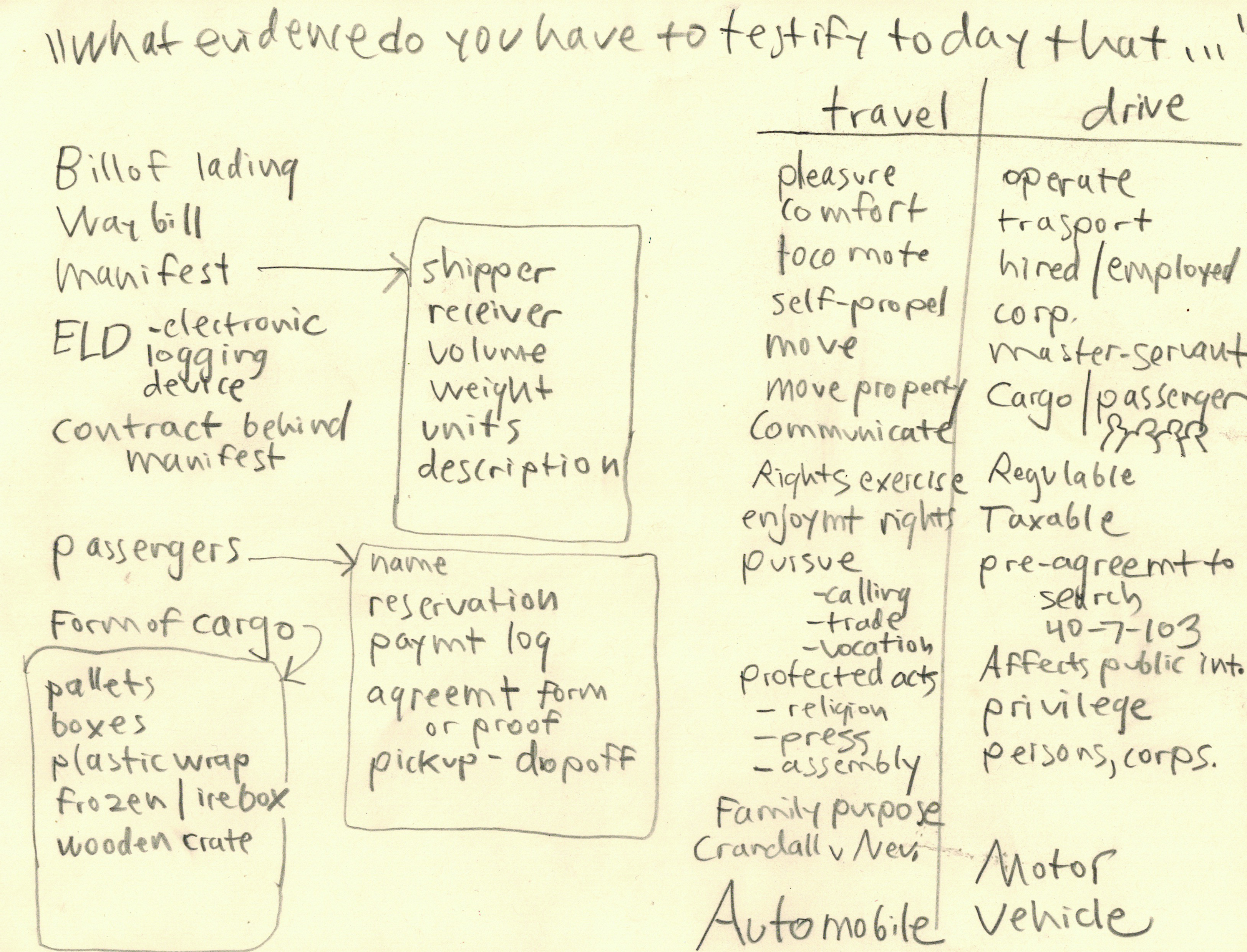Traffic stop = privilege management by unauthorized cop; not all travel is driving
Cops, deputy turn civl, administrative matter into criminal prosecution apart from authority in statute; defend yourself by asking cop for evidence of commerce

CHATTANOOGA, Tenn., Monday, Jan. 6, 2025 — So-called traffic enforcement is a major supporing root of Jim Crow legislation that has its orgins in pre-civil war days and the Dred Scott ruling regarding the status of blacks. “Traffic stops” serve the legal and political establishment by keeping poor and lesser sorts of Americans under continual management and fear.
The short of it is this: Traffic stops are supposed to be civil enforcement of agreement under license between (1) the state (the moving party) and (2) the licensee (the defendant) over acts that are violations of a rules-of-the-road agreement, which acts are, indeed, not crimes.
To defeat the malicious criminal prosecution of such victimless crimes, one must press the accuser and its witness. That would be the cop or deputy. Press this person under oath about the evidence he or she obtained in the arrest. (Every traffic stop is, for 4th Amenment purposes, an arrest.)
That is done by developing questions as the evidence that people involved in the transportation business have to have in their cabs as part of their trade carrying goods or people for hire. In the chart above, that would include items on the left (bill of lading, or example).
If the officer is on the stand, these quesions can be built by means of laying foundation for the question, or asking a series of questions pertaining to any one of these types of evidence.
Believe me, cops do not ask for this evidence, and I’d say 99.9 percent of the time in traffic abuse do not obtain anything like evidence except for the driver license itself.
The driver licene is evidence of commerce, even though you are not a hauler or trucker.
The defendant prefaces each question with the phrase, “What evidence do you have that you can testify to today that — ”
After he states under oath that, ‘Well, I don’t have that evidence,” enough times, the defendant turns to the judge and demands dismissal of the case on grounds of lack of evidence of commercial activity.
My attack on hated traffic stops
Why is this line of inquiry important? An essential element of any driving charge is the allegation of, and proof of, commerial activity under privilege. Not even troopers, who have authority to administer the driving privilege under departments of revenue and safety, ask these evidences from their private automobile user victims (think of Granma, your pastor, the homeschool mom in the minivan with 4 children in the seats).
That means their criminal prosecutions can be dismissed for insufficiency — lack of legal wherewithal to go forward.


